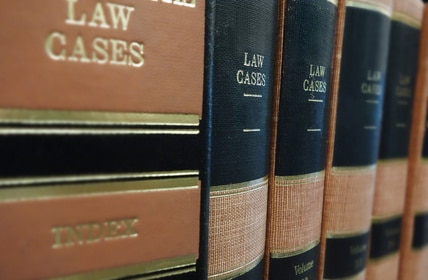Understanding the Role of a Post-Conviction Legal Representative in Seeking Justice After a Criminal Conviction
In the complicated landscape of post-conviction lawful process, the role of a post-conviction attorney is essential in browsing the course to justice after a criminal sentence. Past the confines of a test, these lawful professionals participate in a diverse approach focused on discovering new proof, tough legal mistakes, and promoting for their clients' rights. The complexities of post-conviction job need a blend of legal acumen, investigatory abilities, and tactical believing to unravel the intricacies of a situation and seek avenues that might have been forgotten or underexplored. As the search of justice extends past the boundaries of preliminary procedures, the duty of a post-conviction legal representative emerges as a sign of hope for those seeking to correct injustices and reclaim their legal rights within the lawful system.
Post-Conviction Attorney's Investigatory Job
Post-conviction attorneys participate in careful investigative work to reveal new proof, step-by-step errors, or transgression that might possibly lead to rescinding a conviction. This investigative phase is crucial in the post-conviction procedure as it aims to determine any neglected details or lawful mistakes that may have influenced the end result of the initial test. Post-conviction attorneys look into situation documents, witness statements, and legal paperwork with a fine-tooth comb, looking for any disparities or abnormalities that might be grounds for charm.
Via extensive investigation, post-conviction lawyers intend to drop light on possible injustices that may have occurred throughout the original test. By looking at every facet of the legal process, post-conviction lawyers work relentlessly to uncover any kind of aspects that may have affected the judgment.
Crafting Appeals and Petitions
In the quest of justice after a sentence, knowledgeable legal representatives diligently craft allures and requests to present engaging arguments for the reconsideration of legal decisions. Crafting appeals and applications requires a deep understanding of the legal system, interest to information, and tactical reasoning. Post-conviction lawyers examine test records, determine possible mistakes or violations of rights, and create lawful debates to test the conviction or sentence.
When crafting an appeal, lawyers concentrate on highlighting legal mistakes that may have impacted the end result of the instance. They investigate situation regulation, statutes, and legal precedents to sustain their debates. Applications, on the various other hand, might entail offering brand-new evidence that was not offered during the trial or demonstrating modifications in the regulation that warrant a review of the conviction.
Moreover, post-conviction lawyers have to stick to stringent step-by-step regulations and due dates when filing appeals and requests. They must offer their debates clearly and persuasively to encourage the court to provide relief to their customers. Through meticulous crafting of allures Your Domain Name and requests, post-conviction lawyers strive to protect justice for people that have actually been wrongfully convicted or unjustly sentenced.

Pursuing Post-Conviction Alleviation
Post-conviction alleviation includes a range of lawful systems designed to challenge the validity of a sentence or sentence. Post-conviction attorneys play an essential duty in browsing these complicated procedures, making sure that all lawful options are checked out to correct oppressions that may have happened throughout the test or sentencing phase.
One typical kind of post-conviction relief is submitting a request for post-conviction alleviation, generally based on cases of ineffective assistance of counsel, prosecutorial misconduct, newly found evidence, or constitutional offenses. Experienced post-conviction legal representatives have the abilities and knowledge essential to determine practical legal cases, carry out investigations, and present compelling disagreements to safeguard relief for their clients.
Using Forensic Evidence
When testing a conviction or sentence, the critical utilization of forensic proof can be a powerful tool in post-conviction legal proceedings. Forensic evidence includes a variety of clinical techniques used to investigate criminal offenses and develop realities in court. Post-conviction legal representatives can utilize forensic evidence to test the legitimacy of convictions by offering brand-new scientific findings that were not offered throughout the original trial.

Taking Part In Sentence Alterations
Post-conviction attorneys may discover the possibility of sentence adjustments as a legal opportunity to address out of proportion or unfair sentences passed on in criminal cases. Sentence adjustments entail looking for adjustments to the regards to an accused's sentence after a sentence has actually occurred. These modifications can include reducing the size of a sentence, altering the sort of punishment enforced, or exploring different sentencing options.
Post-conviction attorneys can pursue sentence adjustments through various lawful devices, such as submitting motions for sentence reduction, appealing for caring release, or negotiating appeal deals for minimized sentences. They have to meticulously review the scenarios of the situation, assess the lawful grounds for looking for an alteration, and existing engaging arguments to the court supporting the need for a revised sentence.
Participating in sentence modifications needs a thorough understanding of criminal legislation, sentencing standards, and the specific treatments associated with seeking post-conviction relief. Post-conviction attorneys play a vital function in advocating for fair and just results by difficult sentences that are unduly extreme or do not line up with the concepts of justice.
Conclusion
In final thought, the duty of a post-conviction legal representative is essential in seeking justice after a criminal conviction. Via investigative job, crafting charms and requests, seeking post-conviction alleviation, utilizing forensic evidence, and taking part in sentence modifications, these attorneys play a crucial duty in advocating for their clients and making certain that their civil liberties are promoted within the criminal justice system. Their devotion and knowledge are necessary in browsing the complexities of post-conviction procedures and achieving a reasonable result for people facing criminal convictions.